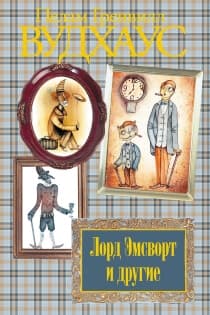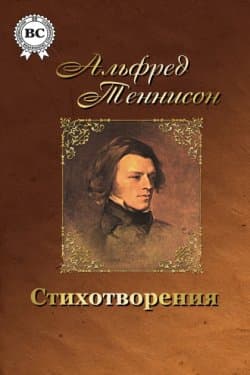Волшебница Шалотт и другие стихотворения - Теннисон Альфред (2007)
-
Год:2007
-
Название:Волшебница Шалотт и другие стихотворения
-
Автор:
-
Жанр:
-
Оригинал:Английский
-
Язык:Русский
-
Перевел:Катар Дж, Бальмонт Константин Дмитриевич Гридинский, Чюмина Ольга Николаевна, Рогов Владимир Владимирович, Стариковский Григорий, Хананашвили Алла, Бунин Иван Алексеевич, Маршак Самуил Яковлевич, Соковнин М, Кружков Григорий Михайлович, Плещеев Алексей Николаевич, Бородицкая Марина Яковлевна
-
Страниц:104
-
ISBN:978-5-7516-0570-5
-
Рейтинг:
-
Ваша оценка:
Волшебница Шалотт и другие стихотворения - Теннисон Альфред читать онлайн бесплатно полную версию книги
And o’er him, drawing it, the winter moon,
Brightening the skirts of a long cloud, ran forth
And sparkled keen with frost against the hilt:
For all the haft twinkled with diamond sparks,
Myriads of topaz-lights, and jacinth-work
Of subtlest jewellery. He gazed so long
That both his eyes were dazzled, as he stood,
This way and that dividing the swift mind,
In act to throw: but at the last it seem’d
Better to leave Excalibur conceal’d
There in the many-knotted waterflags,
That whistled stiff and dry about the marge.
So strode he back slow to the wounded King.
Then spake King Arthur to Sir Bedivere:
‘Hast thou perform’d my mission which I gave?
What is it thou hast seen? or what hast heard?’
And answer made the bold Sir Bedivere:
‘I heard the ripple washing in the reeds,
And the wild water lapping on the crag.’
To whom replied King Arthur, faint and pale:
‘Thou hast betray’d thy nature and thy name,
Not rendering true answer, as beseem’d
Thy fealty, nor like a noble knight:
For surer sign had follow’d, either hand,
Or voice, or else a motion of the mere.
This is a shameful thing for men to lie.
Yet now, I charge thee, quickly go again
As thou art life and dear, and do the thing
I bad thee, watch, and lightly bring me word.’
Then went Sir Bedivere the second time
Across the ridge, and paced beside the mere,
Counting the dewy pebbles, fix’d in thought;
But when he saw the wonder of the hilt,
How curiously and strangely chased, he smote
His palms together, and he cried aloud,
‘And if indeed I cast the brand away,
Surely a precious thing, one worthy note,
Should thus be lost for ever from the earth,
Which might have pleased the eyes of many men.
What good should follow this, if this were done?
What harm, undone? deep harm to disobey,
Seeing obedience is the bond of rule.
Were it well to obey then, if a king demand
An act unprofitable, against himself?
The King is sick, and knows not what he does.
What record, or what relic of my lord
Should be to aftertime, but empty breath
And rumours of a doubt? but were this kept,
Stored in some treasure-house of mighty kings,
Some one might show it at a joust of arms,
Saying, ‘King Arthur’s sword, Excalibur,
Wrought by the lonely maiden of the Lake.
Nine years she wrought it, sitting in the deeps
Upon the hidden bases of the hills.’
So might some old man speak in the aftertime
To all the people, winning reverence.
But now much honour and much fame were lost.’
So spake he, clouded with his own conceit,
And hid Excalibur the second time,
And so strode back slow to the wounded King.
Then spoke King Arthur, breathing heavily:
‘What is it thou hast seen? or what hast heard?’
And answer made the bold Sir Bedivere:
‘I heard the water lapping on the crag,
And the long ripple washing in the reeds.’
To whom replied King Arthur, much in wrath:
‘Ah, miserable and unkind, untrue,
Unknightly, traitor-hearted! Woe is me!
Authority forgets a dying king,
Laid widow’d of the power in his eye
That bow’d the will. I see thee what thou art,
For thou, the latest-left of all my knights,
In whom should meet the offices of all,
Thou wouldst betray me for the precious hilt;
Either from lust of gold, or like a girl
Valuing the giddy pleasure of the eyes.
Yet, for a man may fail in duty twice,
And the third time may prosper, get thee hence:
But, if thou spare to fling Excalibur,
 Том 1 - Стихотворения Гумилев Николай Степанович
Том 1 - Стихотворения Гумилев Николай Степанович
 Лирика. Т2 - Стихотворения 1815-1873 Тютчев Федор Иванович
Лирика. Т2 - Стихотворения 1815-1873 Тютчев Федор Иванович
 Сочинения в 2-х томах. Том 1. Стихотворения. Мандельштам Осип Эмильевич
Сочинения в 2-х томах. Том 1. Стихотворения. Мандельштам Осип Эмильевич
 Парижский сплин: Стихотворения в прозе Бодлер Шарль Пьер
Парижский сплин: Стихотворения в прозе Бодлер Шарль Пьер
 Том 7. Дядя Динамит и другие Вудхаус Пэлем Грэнвил
Том 7. Дядя Динамит и другие Вудхаус Пэлем Грэнвил
 Том 6 Лорд Эмсворт и другие Вудхаус Пэлем Грэнвил
Том 6 Лорд Эмсворт и другие Вудхаус Пэлем Грэнвил

 Наследник
Наследник  Пир теней
Пир теней  Князь во все времена
Князь во все времена  Когда порвется нить
Когда порвется нить 



